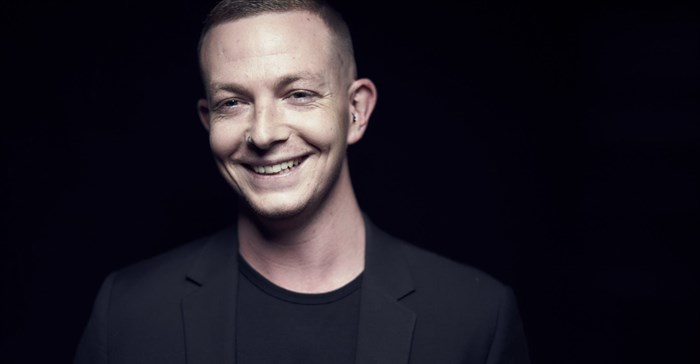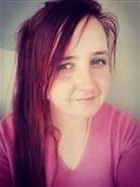#YouthMonth: Innovation in the face of disaster

At a young age, Mckivergan started 8909, a digital marketing agency, on his own - and has found great success since its start in 2015. This includes doubling revenue and staff count in the midst of the Covid-19 lockdown and being acquired by Metropolitan Republic in 2020.
We spoke to Mckivergan to find out more about his work, how 8909 achieved this, and why quantified creativity is so important to the agency…
Tell us a bit more about yourself - who is the person behind the CEO?
I’m an “old soul” who is incredibly young at heart and finds excitement in all aspects of life. I have an immense passion for music, fashion, culture, the digital industry and sparking meaningful change in the advertising industry in SA.
I’ve had an entrepreneurial spirit since I was four years old - which has served me well to this day in the various roles I have had throughout my career. I have a degree in Psychology and an Honours degree in Media Studies. I founded 8909 in 2015, on my own, funded by the profits of an event company (9 Lives) that I had started in my 20s, which hosted culture-shifting events.
What does your role entail?
I drive the strategic direction of the agency, day to day management and operations of the agency, client relations and new business. I’m actively involved with all pitches and projects, and a big part of my role is ensuring we identify and bring the right kind of people (who are passionate and exceptionally talented and skilled in their respective roles) into the agency as we continue to grow.
What challenges did you face during your time as CEO?
People. Being in a service-based industry our assets are our people and my job is to ensure we find the right people and retain them. This has been very difficult considering the massive creative talent drain to foreign countries as well as the cultural hurdles put in place with the sudden work from home model caused by the pandemic.
Innovation. In a constantly changing industry, I need to ensure that, as a business, our work and offering are constantly relevant and aligned to clients’ needs. This is what makes my job exciting, but challenging at the same time.
Cash flow. People always warn entrepreneurs about the struggles of cash flow but we don't realise it until it slaps us in the face. The tricky thing with cash flow is that as a business owner you are constantly balancing “proving yourself to clients” with “getting cash in the bank”, while at the same time adding the complexity of having to play both good cop and bad cop with the client does not make things any easier.
During lockdown, 8909 managed to double in staff and revenue - how did you manage to achieve this?
Hard work, innovation and timing (also known as luck) were the ingredients to our success over lockdown.
As a digital business, our offering became even more relevant to the South African market during the lockdown. With our digital-first mentality (utilising the cloud and remote management systems) all lockdown meant to us was taking our laptops home and continuing to work as per usual. In addition, during the lockdown, we noticed an increased need for different forms of advertising as brands could no longer do sampling and on the ground activations.
It was at this point that we dramatically increased our focus on influencer marketing. The thinking was - in a world where people can no longer walk the streets, hand out flyers and talk to others, a need for people that could walk the streets of Twitter and the interwebs became apparent. With influencers, we now have people who can walk the Twitter streets and do the same; sharing promo codes, content and purchase links. We currently manage anywhere from 100 to 2,000 influencers per month.
While this was all happening we underwent an acquisition deal with MetropolitanRepublic which saw 8909 take on all of the digital work within the MetropolitanRepublic portfolio. In addition to this, we also won some great new clients such as Eskort and Grandpa amongst others.
Could you tell us a bit more about the concept of quantified creativity?
It is the very backbone of our approach to work. Simply put, everything we do in the agency is based on and held to data. We create campaigns, insights and strategies that evolve with the data gained from their successes and downfalls - guaranteeing that they improve with time, ultimately increasing ROI. Data leads to work, and the work creates more data, which we use to finetune the work, and so on. It’s our way of keeping flexible and ahead of the curve in this data-rich world.
How do you apply this concept to the way you work?
When work is briefed, we immediately use data to develop insights into the category, market or product world. These insights inform the basis of our strategy, supported by research and understanding.
In turn, this leads to how the campaign is actioned by the creative team, and once live, the campaign itself becomes data again - allowing us to finetune, improve and evolve the work. This ensures that campaigns not only catch the attention of potential customers but also drive sales and bring down media costs.
Could you tell us a bit more about some successful campaigns that were made using the concept of quantified creativity?
#ILoveEatingRussians - through social listening we identified that South Africa is the only country in the world that calls a sausage a Russian. This insight-powered our big idea, which saw us convince the whole of South Africa that the Russians thought we were eating them (pre-war time, of course). Using smart data tracking we then retargeted everybody that had engaged with this topic with an ad which revealed that Eskort was behind this hoax. This campaign drove a 200% increase in Russian sales.
Our Bra Shakes campaign for Med-Lemon also saw us using social media listening data over a period of two years to inform the key insights for ATL, digital advertising and content. Through social listening, we identified the most common moments where flu gets in the way of South Africans living their best life. We then used search query data in addition to this social listening data to create YouTube videos which busted myths about flu and answered the most commonly asked questions. By doing this and by placing content on YouTube it meant that when the commonly answered flu questions were asked on Google, our Med-Lemon videos appeared first, ensuring Med-Lemon was top of mind when it came to all flu-related topics.
What advice do you have for young people looking to enter your industry?
Dream big - don’t undersell yourself! Set big long term goals and you will see larger incremental success.
Be a doer, not a talker - don’t just talk, actually do.

Related
Special Effects Media SA's Casey Mantle new chair of the IAB SA Influencer Marketing Committee for 2025 10 Jan 2025 How SA's youth can thrive in the age of AI 30 Jun 2024 #YouthMonth: Kyle Percival's rise from adversity to co-owning a sportswear brand 28 Jun 2024 #YouthMonth: Thamsanqa Tembani, the young leader driving change at Isuzu South Africa 27 Jun 2024 #YouthMonth: Yoshin Leonard - Young people's voice is a right 26 Jun 2024 #YouthMonth: Ashanti Mbanga is empowering SA for a sustainable energy future 21 Jun 2024































